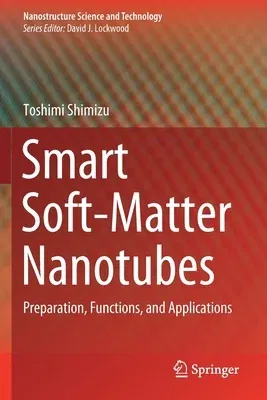Toshimi Shimizu
(Author)Smart Soft-Matter Nanotubes: Preparation, Functions, and Applications (2021)Paperback - 2021, 3 July 2022

Qty
1
Turbo
Ships in 2 - 3 days
In Stock
Free Delivery
Cash on Delivery
15 Days
Free Returns
Secure Checkout

Part of Series
Nanostructure Science and Technology
Print Length
363 pages
Language
English
Publisher
Springer
Date Published
3 Jul 2022
ISBN-10
9811626871
ISBN-13
9789811626876
Description
Product Details
Author:
Book Edition:
2021
Book Format:
Paperback
Country of Origin:
NL
Date Published:
3 July 2022
Dimensions:
23.39 x
15.6 x
2.01 cm
ISBN-10:
9811626871
ISBN-13:
9789811626876
Language:
English
Location:
Singapore
Pages:
363
Publisher:
Weight:
535.24 gm